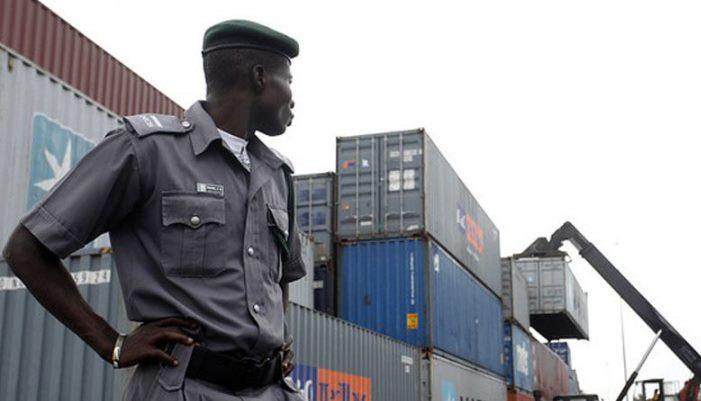Freight Forwarders, Stakeholders Blame Customs For Hasty, Poor Implementation Of VIN Valuation Policy …Say Thousands Of Vehicles Abandoned At Ports…As Importers, Customs, Terminal Operators Count Loses At MAJAN Roundtable
By BENJAMIN OMOIKE
Freight forwarders and stakeholders in Nigeria have blamed the hasty and poor implementation of the Vehicle Identification Number (VIN), valuation policy employed by the Nigerian Customs Service (NCS), for the various challenges currently being experienced at the Ports today, with regard to clearing of imported vehicles into the country and general seamless transactional activities within that corridor.
The concerned stakeholders decried the vehicle clearance policy, which according to them, has left thousands of automobiles abandoned at the ports by their owners.
At a roundtable organised by the Maritime Journalists Association of Nigeria (MAJAN), a periodic maritime talkshow on topical issues in the industry, which held at the Association’s Apapa Secretariat, the freight forwarders roundly lamented and condemned the unfortunate situation at the Ports presently.
They alleged that the Customs coerced importers and their agents into a policy that was haphazardly packaged, which fell short of the originally canvassed ‘enticing details’, now leading to all stakeholders, including Customs alike, being the losers.
The forum observed that presently, the revenue Customs had projected to realise through the policy, otherwise called VIN-valuation, has been on a downward trend, with the terminals littered with abandoned vehicles, even as cost of automobiles have shot to rooftop in the market.
The freight forwarders affirmed that the major hitch in the policy was the assessment of the non-standard vehicles – that is those imported automobiles which data had not been inputted into Customs portal – saying their duty rate had been outrageous.
On the other hand, they said for those vehicles with 17 digits, which data had been captured in Customs’ portal, there were no issues in their duty assessment, awarding the process of clearing them at ports over 90 per cent pass mark.
They, however, observed that some brands of vehicles such as Mercedes Benz 2003 M model and BMW with 17 digits were yet to be inputted into the system, thereby making their clearance a herculean task.
Fwdr George Okafor, the Chairman, PTML chapter, National Association of Government Approved Freight Forwarders (NAGAFF), attributed Customs’ hasty implementation of the policy to the reduction of vehicle duty from 35 to 20 per cent.
He suspected that Customs, having felt a likely revenue loss by the reduction, decided to put in place the VIN-valuation without adequate ground work to avoid hitches.
Okafor informed that the initial agreement was that the service would test-run the policy in a particular port for sometime before making it universal but regretted that the idea was jettisoned for a one fell swoop thing that had become counterproductive.
The Deputy Chairman, PTML chapter, National Council of Managing Directors of Licensed Customs Agents (NCMDLCA), Mrs. Jewel Igwe, expressed worries that the initial arrangement of the policy was to peg the age limit of vehicles at 12 years.
She, however, lamented that the service surprisingly reduced it to nine years, even without any prior notification for such deviation.
According to her, “the PTML terminal manager is complaining about the drop in output, even Customs officers are complaining; everybody is losing. Let them review the age limit; even at that, the duty on standard vehicles is still high as far as I’m concerned.”
On his part, the Public Relations Officer (PRO), African Association of Professional Freight Forwarders and Logistics in Nigeria (APFFLON), Tin Can chapter, Rev. Clinton Okoro, said Customs violated its decision to test-run the policy before going full blast.If the service had stuck to what it had earlier canvassed at the sensitization forum in Abuja, he stressed, the VIN-valuation system would have gone side by side with manual implementation until everything was perfected.
Okoro lamented that the resultant inherent hitches in the system had given rise to unnecessary delays that had resulted in huge demurrage.With the piled up demurrage, the reverend gentleman cried out that nobody was looking into how to alleviate the burden as the delays were neither caused by the importer nor his agent.
He observed that it was as a result of the huge demurrage and high duty that had caused importers to abandon the vehicles in the port as the business had become unprofitable.
The image maker also pointed out that Customs failed to factor in the depreciation value of automobiles in its projections, explaining that every year vehicles usually depreciated by 10 per cent in value.
This act of omission, he noted, had added to the high cost of duty on the imported vehicles with maters made worse by demurrages.Oh her part, the Tin Can chapter PRO, Association of Nigerian Licensed Customs Agents (ANLCA), Mrs. Joy Monije Onome, concurred with her colleagues in their presentations and expressed concerns on issues with the Vehicle Registration company (V-REG).
She noted that apart from the firm not being easily reachable as they had no office in their operational area, Apapa, she observed that they always had network unavailability problem and urged them to begin to upgrade their system for a seamless operation.
Onome used the forum to also demand for a chart on all vehicles as a guide to their assessment and clearance, even as she equally urged the Customs to come up with a data base on all vehicles both standard and non-standard.
She noted that the absence of import duty chart and data base had given rise to physical human contact with Customs operatives in the course of clearing non-standard vehicles leading to abuses and exploitation.
On the inability of freight forwarders to speak in one voice to challenge some of the unfriendly policies of agencies, the Deputy Chairman, Tin Can chapter, National Council, Mr. Falana Yakubu, blamed it on proliferation of agents’ groups.
The development, he said, had made them not to have a common position on issues of interest at the ports, pointing out however that the unfriendly disposition of agencies at the ports was forcing them to begin to come together.
Citing a case with the downing of tools by agents in PTML and Tin Can in the wake of the introduction of the VIN-valuation, he informed they were expecting Customs to address the observed nagging issues within 90 days or expect reactions from them.
The forum frowned at appointing non-career officers to the headship of the NCS, pointing out that some of the hitches in the system would not have been if the service was headed by a qualified Comptroller General.




